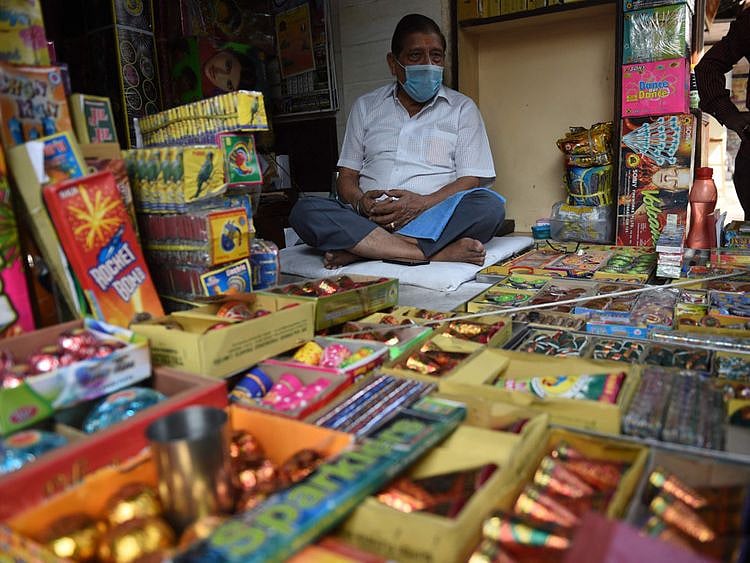India: Firecrackers seized in crackdown on festival pollution
4 tonnes of firecrackers seized after police raided markets and arrested dozens of people

Also In This Package
Diwali in UAE: Where to watch fireworks today
Long weekend in Dubai: Beach party, food or Squid Game
Dh200 drop and pent-up drive spur UAE gold rush
UAE-India air routes are getting busy once again
Indian festival crowds return as COVID-19 horrors fade
Diwali gold exchange schemes work well for UAE shoppers
New Delhi: Delhi police have seized four tonnes of illegal polluting firecrackers as the Indian megacity heads into its winter smog season when its 20 million people regularly choke on putrid grey-yellow air.
Traditionally, millions of firecrackers are set off during Diwali, the Hindu festival of light, which takes place later this week across the nation of 1.3 billion people.
In Delhi their smoke mixes with car exhaust, factory emissions, construction dust and burning crop stubble from nearby states to worsen a poisonous cocktail that regularly exceeds safe limits by up to 20 times.
Seeking to reduce the pollution, authorities like in previous years have banned firecrackers in cities with particularly bad air.
On Monday, four tonnes of firecrackers were seized from various locations in Delhi after police raided markets and arrested dozens of people illegally selling the explosives.
Media reports said some of the firecrackers were procured from illegal factories and brought into Delhi from the neighbouring states of Haryana and Uttar Pradesh.
Delhi on Monday experienced its first day of the season with “poor” air while the suburbs of Ghaziabad and Noida recorded “very poor” air on a government index.
Twenty-two of the world’s 30 most polluted cities are in India, with Delhi being the most polluted capital city, according to a world air quality report released last year.
A Lancet report last year said 67 million deaths were attributable to air pollution in India in 2019, including almost 17,500 in Delhi.
Earlier this year the Delhi government opened its first “smog tower” containing 40 giant fans that pump 1,000 cubic metres of air per second through filters.
The $2-million installation halves the amount of harmful particulates in the air but only within a radius of one square kilometre (0.4 square miles), according to engineers.
Sign up for the Daily Briefing
Get the latest news and updates straight to your inbox
Network Links
GN StoreDownload our app
© Al Nisr Publishing LLC 2026. All rights reserved.